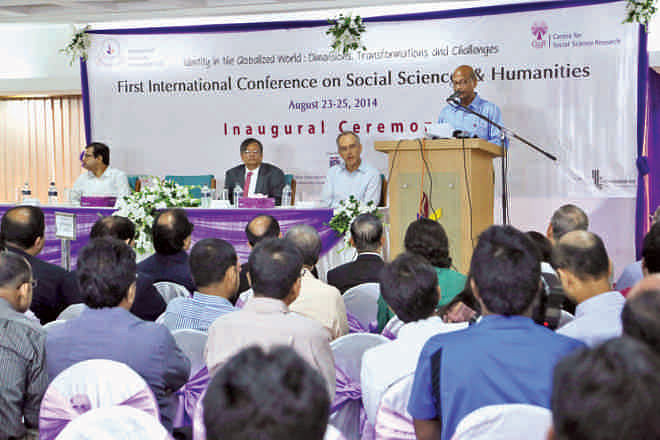Understanding Identity
Understanding Identity

Stuart Hall, in the introduction to a volume of studies published in 1996, suggested that "There has been a veritable discursive explosion in recent years around the concept of identity." More than a decade has passed since he made that observation, but the concept of identity has exploded in worldwide academia, making it the major topic of interest amongst philosophers, social scientists and media experts alike. Quoting renowned Polish Sociologist Zygmunt Bauman: “It is not just that 'identity studies' are fast becoming a thriving industry in their own right; more than that is happening – one may say that 'identity' has now become a prism through which other topical aspects of contemporary life are spotted, grasped and examined. Established issues of social analysis are being rehashed and refurbished to fit the discourse now rotating around the 'identity' axis”.
Who are you? Are you a Bangladeshi? A Muslim? A Canadian citizen? Or are you an international citizen of the Global World? Our identities in this age of globalisation cannot be categorised into neat little boxes. Rather, our identities are varied, overlapping and intertwined into innumerable hybrid connotations. Continuing this international academic trend of studying and understanding Identity in today's Globalised world, last month witnessed the foremost International conference on Social Sciences and Humanities organised by the Centre for Social Research (CSSR) at Independent University, Bangladesh (IUB).
The conference, titled “Identity in the globalised world: Dimensions, transformations and challenges”, was held from August 23-25, 2014 at the IUB campus at Bashundhara, Dhaka. The CSSR put together an amazing international conference where around 63 papers were presented in 21 parallel sessions.
The keynote speaker was renowned Asia Scholar Professor Willem van Schendel, Professor of Modern Asian History, University of Amsterdam and Head of South Asia Department, International Institute of Social History, Amsterdam. Professor Schendel delivered his keynote session titled “Interconnected Asia”. In his speech Professor Schendel referred to Bangladesh as being located at the heart of the Asian continent and is a hub of inter-Asian connections. These connections develop, fragment and recombine continually. A more methodical understanding of these dynamics is essential for the future of Asian studies. His speech was followed by remarks from Professor Omar Rahman. The session was one of the highlights of the conference and had led to some invigorating debates and enlightening discussions.
As the conference sessions rolled on, it was refreshing to see such a wide variety of papers being presented on multiple panels with numerous research themes.
Papers and discussions based on the multiple perspectives of globalisation were especially noticeable. While many presenters put forward the negative impacts of globalisation, some papers explained newer ways of understanding and viewing this issue, and some of them also talked about de-globalisation.
Debates regarding methodology and research philosophy were also the topics of some heated Q/A sessions after almost every panel presentation, where academics from Sociology went head to head with their counterparts from Media, Cultural Studies and Anthropology. Even though every panel presentation ended with handshakes and smiles, undoubtedly some controversial topics were tackled and ultimately, all this culminated into a more critical understanding and clarification of the majority of the papers.
The most notable feature of the conference is the attendance of a huge number of young academics and scholars from all over the world. The majority of the audience consisted of social science and humanities students and academics. The energy and enthusiasm of the youth present here galvanised the whole conference atmosphere.